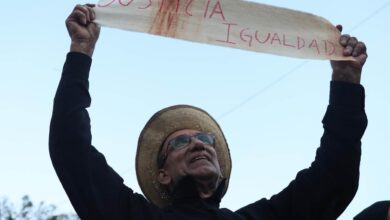This is what you must do to age well
Listen this article
Adopting favorable habits for the body since young can help you to have a much healthier aging

Healthy aging is a process that takes place throughout life to reach old age with a good quality of life, well-being, and independence.
Leer en español: Esto es lo que debes hacer para envejecer bien
The important thing, according to the experts, is to adopt favorable habits for the body from a young age. Find here some of the most relevant:
1. The diet. For nobody is a secret that today we eat worse than a few decades ago. According to the Infosalud newspaper, people often reach old age with obesity or malnutrition. That is why watching what you eat is essential for healthy aging: moderate alcohol intake, eliminate processed foods and follow the Mediterranean diet, based on the consumption of fruits, vegetables, fish, whole grains, among others, are some of the things you can do.
You may also be interested: 7 fitness trends for 2019
2. Sleep well. According to the newspaper Mayor Actual, in the framework of the 14th World Conference of the International Federation on Aging under the title "Towards a decade of healthy aging: from evidence to action", the importance of sleep was discussed for brain health. Sleeping between seven and eight hours is linked to better physical health in the elderly and better functioning of the brain since sleep favors the cleaning of the metabolic waste during the day.
3. Take care of your skin. Protect your skin from solar radiation, pollution that promotes the appearance of wrinkles and promotes aging, high consumption of sugar, the consumption of tobacco that dulls the skin, stress, lack of sleep, and excessive use of cosmetics.
4. Stimulate your brain. Our brain develops neurons and brain connections during life when it participates in cognitively stimulating activities. Try to learn new things every time you can, even if you have already finished your formal academic life. Get involved in social activities or learn a new language
You may also be interested: A good diet could prevent cognitive deterioration
5. Move constantly. Exercise and physical activity have a great impact on the body and the mind. In addition to reducing the risk of anxiety and depression and increasing metabolic health, exercise promotes muscle strength, agility, and bone health.
Get involved in sports where you can socialize with others, such as tennis, or if you do not want to do a lot of physical activity, join a group of people with similar interests, volunteer, teach someone a new skill or use technology to stay in Contact.
LatinAmerican Post | Luisa Fernanda Báez
Translated from "Esto es lo que debes hacer para envejecer bien"





